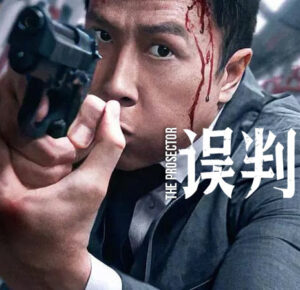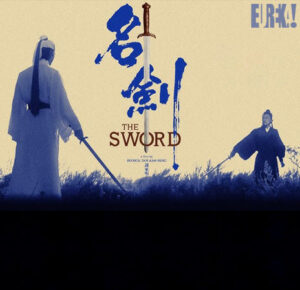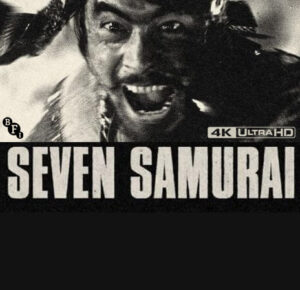Director: Lu Yang
Cast: Chang Chen, Cecilia Liu, Wang Qianyuan, Ethan Li, Nie Yuan, Chin Shih-chieh, Ye Qing, Zhou Yiwei, Zhu Dan, Zhao Lixin, Ye Xiang Ming
Running Time: 106 min.
By Kelly Warner
There’s a line in Jean Renoir’s The Rules of the Game that goes a little something like, “The awful thing about life is this: everyone has their reasons.” It’s a simple concept, but so true, and I wish more people writing villains would keep it in mind. I believe director Lu Yang understands Renoir’s sentiments as he paints all the characters of Brotherhood of Blades in various shades of gray. No hero is without sin and no villain does evil without cause. Everybody’s doing what they feel they must in order to survive, even if that means a few people get hurt along the way. So often in these sorts of films we are treated to a sneering villain, one who is clearly evil because his performance and dialogue would allow him to be nothing else in the world. And while Brotherhood of Blades is full of villainous characters, they all have their reasons.
In the 1620s, the Eunuch Wei (Chin Shih Chieh) was seen as too powerful to continue his reign, and the Emperor asked him to step down. Even with Wei now removed from power, his influence was still felt far and wide, and so begun a manhunt for his closest followers who were known as the Eunuch Clique. Tasked with detaining or killing the Eunuch Clique are three Imperial Assassins (played by Chang Chen, Wang Qianyuan, and Ethan Li Dong Xue,). When finally they are sent to eliminate Wei himself, one of the assassins makes the mistake of letting Wei talk. Instead of assassinating Wei, he takes Wei’s bribe of gold and delivers a burnt corpse to the officials, one whose identity cannot be readily identified. Suspicion grows and soon it seems like everyone the three assassins knows is out to kill them.
With Brotherhood of Blades, I expect you’ll come for the action but you’ll stay for the story. This is a complex historical drama full of backstabbing, secrets told behind paper walls, and the bloody consequences of telling one lie too many. It’s the sort of action film where more is accomplished (or brought to ruin) with a sideways glance and a lie than most films manage with a series of explosions ripping through a city street. It’s a subtle, stylish script, brought to life by great direction and some nuanced performances.
The three Imperial Assassins at the center of the story are like brothers, so when one of them takes Wei’s bribe and betrays their masters it’s interesting to see how the three respond. You can sense how much they mean to each other, even while this transgression threatens to collapse the brotherhood they have built.
Chen plays the man who took the bribe, but he did so with the best of intentions. Chen does a good job playing the conflicted character, detailing his hero’s fall from grace both physically and emotionally. Wang and Li, who play the other members of this Brotherhood, are also quite good. Qianyuan Wang is the senior member and takes the betrayal as a personal slight. I liked the way Wang conveyed so much with only the use of his eyes. I’m not familiar with the actor, but I’m taking notice now. Dong-xue Li plays a man with a dark secret, but he’s also the most innocent of the three. Li’s character endangers the film the most as he goes through young love, but the actor never lets these scenes hinder the story in any way.
Perhaps most impressive is Cecilia Liu Shi Shi, who plays Chang Chen’s love interest. Liu’s character is a courtesan in a high-priced brothel and Chen’s trying to buy her freedom. In many movies, this would have been a weak character — the hooker with a heart of gold, if you like — but Liu and the writers manage to make her into something more. Despite Chen’s devotion for her, Liu is in love with someone else, and no big dreams or promises of freedom are going to change her mind. The moments between Chen and Liu are my favorite parts of the film. There’s a quiet but determined stillness to them that I like, as two characters who want very different things are forced to do a dance of manners for fear of disappointing the other person. Strong female characters are rare in these sorts of films. And I don’t necessarily mean women who can kick ass (Liu does not play such a character here). I mean layered, complete female characters with wants and needs of their own that don’t exist solely to enrich the male hero’s character development. Shishi Liu is superb in the role.
While the film’s script and performances are the strongpoints, the action is pretty good, too. Brotherhood of Blades opts for a more handheld approach to its camerawork, which makes the fight sequences more in-your-face and visceral. As a tradeoff, we don’t get shots that truly wow the viewer, but I don’t think action fans should have much to complain about. Still, keep in mind that Brotherhood of Blades is a drama first and an action film second: remember that and you should find a lot to enjoy here.
I feel I must also comment on the costume design, which is top-notch and very cool (and has apparently won an award or two). Costume design, like set design, makeup, hair, and lighting, usually goes unnoticed unless it’s truly awful or very impressive. With Brotherhood of Blades, I’m happy to say that everyone brought their A game.
Brotherhood of Blades has the looks of a wuxia action film, but it works best as a complex character drama. The story is tightly written, the direction is stylish, and the acting is excellent. It’s a great movie.
Kelly Warner’s Rating: 8/10























4 Comments